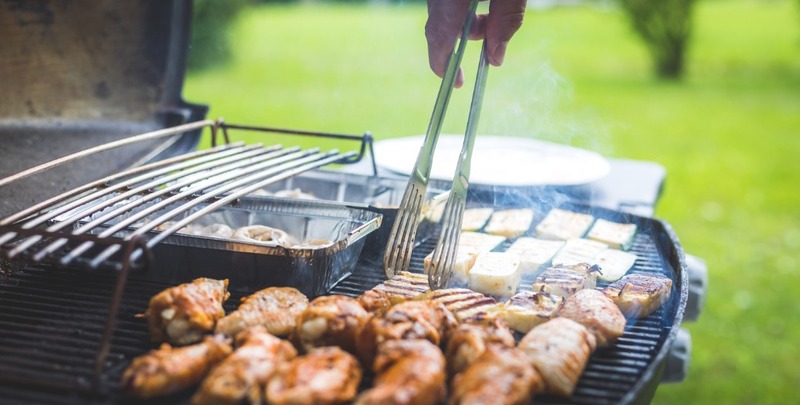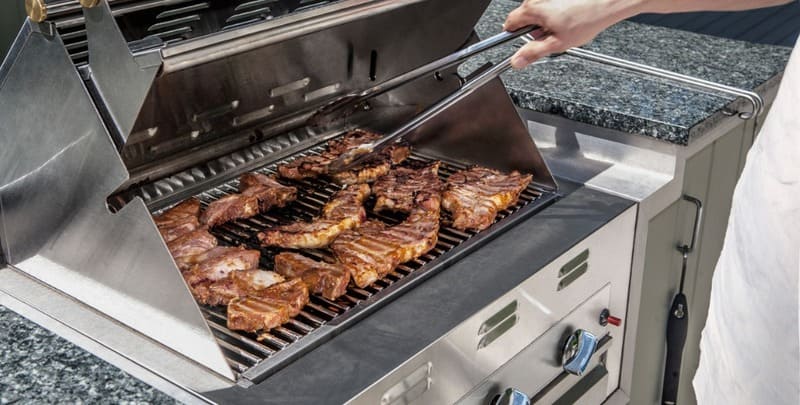The Ultimate Guide to Natural Gas BBQ Connections: Pros, Cons and Safety Tips

Barbecuing is a beloved outdoor activity that brings friends and families together. While traditional charcoal grills have their charm, natural gas grills offer a convenient and hassle-free alternative.
With natural gas BBQ connections, you can say goodbye to the hassle of handling charcoal, the inconvenience of propane tank replacements, and the uncertainty of running out of fuel midway through a cookout. These connections provide a continuous and reliable gas supply, allowing you to focus on what matters most – grilling delicious meals and making memories with loved ones.
From the sizzle of juicy steaks to the aroma of mouth-watering burgers, we’ll cover everything you need to know to master the art of grilling with natural gas.
What is a Natural Gas BBQ Connection?
A gas BBQ connection involves using a natural gas line to fuel your grill instead of propane tanks or charcoal. It provides a continuous gas supply, eliminating the need for frequent propane tank replacements and ensuring uninterrupted cooking sessions.
The Pros of Natural Gas BBQ Connections
- Convenience: Never worry about running out of fuel during a cookout. Natural gas connections offer a steady supply, allowing you to grill without interruption.
- Cost-effective: While the initial installation cost may be higher, natural gas is generally cheaper than propane in the long run, saving you fuel.
- Environmentally friendly: Natural gas burns cleaner than other fuels, emitting fewer greenhouse gases and reducing your carbon footprint.
- Easy ignition: With a natural gas grill, you won’t need to worry about lighting charcoal, gas bottle refills, or tricky ignition systems. Just turn the knob, and you’re ready to cook.

The Cons of Natural Gas BBQ Connections
- Limited mobility: Unlike propane grills, which can be taken anywhere, natural gas grills are fixed to the gas line’s location, limiting their portability.
- Installation complexity: Setting up a natural gas connection may require professional assistance, involving installing a gas line from your home’s supply to the grill area.
Safety Tips for Natural Gas BBQ Connections
1. Proper Installation is Key
Always hire a licensed professional to install your natural gas BBQ connection. This ensures that the gas line is correctly set up, minimising the risk of leaks or accidents.
2. Regular Maintenance
Inspect your gas line and connections regularly for wear, damage, or corrosion. Replace any faulty parts immediately and ensure the gas line is securely connected to the grill.
3. Checking for Gas Leaks
Conduct a simple leak test before each use. Apply a soapy water solution to the gas hose and connections while the gas supply is on. If you see bubbles forming, there might be a leak. In such cases, immediately turn off the gas supply and address the issue before using the grill.
4. Outdoor Use Only
Never use a natural gas grill indoors, as it can lead to dangerous gas buildup. Always grill in a well-ventilated outdoor area, away from any structures or combustible materials.
5. The Importance of a Regulator
A regulator helps control the gas flow, ensuring a consistent and safe supply to the grill. Check the regulator regularly and replace it if it shows wear or damage.
6. Shut-off Valves
Install shut-off valves along the gas line for added safety. You can quickly shut off the gas supply in emergencies or when the grill is not in use.
7. Keep the Grill Clean
Regularly clean your natural gas grill to prevent grease buildup and debris that could obstruct gas flow or cause fire hazards.

Selecting the Right Natural Gas Hose for Your Barbecue
When it comes to natural gas BBQ connections, choosing a suitable hose is crucial for safety and efficiency. Here’s a detailed look at selecting the perfect natural gas hose for your barbecue:
Natural gas hoses are flexible tubes connecting your barbecue grill to the gas line. They come in various lengths and materials, and choosing one that meets the safety standards and fits your grilling setup is essential.
- Safety first: Ensure that the natural gas hose you choose is specifically designed for use with natural gas. Using hoses not rated for natural gas can lead to leaks or even fires. Look for hoses labelled “natural gas” or “NG”, and avoid using hoses meant for other applications, such as propane or water.
- Correct sizing: Measure the distance between your gas line connection and the grill to determine your desired hose length. A hose that is too short may strain the connections, while one that is too long can create unnecessary hazards. Remember to account for any bends or loops in the hose’s path and choose a hose that fits without excessive slack.
- Material matters: Natural gas hoses are typically stainless steel or rubber. Stainless steel hoses are more durable and resistant to damage and weathering, making them a preferred choice for long-term use. On the other hand, rubber hoses are more flexible and easier to handle, but they may require replacement more frequently.
- Regular inspection: Once you have the natural gas hose installed, inspect it regularly for any signs of wear, cracks, or damage. If you notice any issues, replace the hose immediately to prevent potential leaks or safety reasons.
Gas Fitter Near Me: Your Key to Effortless Grilling with Natural Gas
Now that you’re armed with knowledge about natural gas barbecue connections, you’re ready to elevate your grilling game to new heights! Whether hosting a backyard barbecue or just cooking a quick weeknight meal, grilling with natural gas is the way to go!
But before you get started, prioritise safety. Hiring a skilled gas fitter to install your new gas line ensures seamless and secure fittings and connections. Regularly inspecting your hoses, eliminating refills of gas bottles, and following safety tips will keep your grilling sessions worry-free and fun-filled.
So, get that side burner sizzling, grill your favourite dishes, and create mouth-watering memories with your loved ones. Book now for a safer, sizzling experience.
Please note: This information is provided for advice purposes only. Regulations differ from state to state, so please consult your local authorities or an industry professional before proceeding with any work. See our Terms & Conditions here.